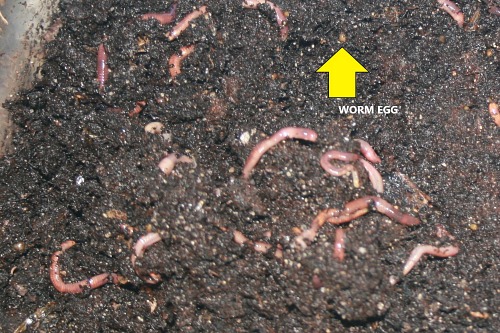Professional Lawn Care Assistance Powered by Lake Hickory Bait for Stunning Results
Professional Lawn Care Assistance Powered by Lake Hickory Bait for Stunning Results
Blog Article
The Unbelievable Globe of Red Wigglers: Boost Your Dirt Fertility Today
These small yet effective microorganisms transform natural waste right into important worm spreadings, significantly enhancing dirt health and promoting lasting techniques. As we explore the benefits of vermicomposting and the sensible steps to create an efficient worm container, the potential influence of these worms on your horticulture success becomes increasingly obvious.
Understanding Red Wigglers
Red wigglers, scientifically known as Eisenia fetida, are a varieties of earthworm that play a critical duty in enhancing soil fertility. These worms grow in organic-rich environments, such as compost heap and decomposing plant product, where they eat natural waste and excrete nutrient-dense castings. Their distinct composition, including a fractional body and a clitellum, permits them to reproduce rapidly and efficiently process large amounts of raw material.

The ecological significance of red wigglers expands beyond plain waste processing; they add to the dirt food web, cultivating a diverse area of bacteria that further boost soil wellness. Comprehending the biology and actions of red wigglers is necessary for harnessing their complete potential in lasting agriculture and horticulture practices.
Benefits of Vermicomposting
(Red Wiggler Express)Utilizing the power of red wigglers with vermicomposting deals countless advantages that dramatically enhance soil wellness and fertility. Among the primary advantages is the production of nutrient-rich worm spreadings, which are an outstanding all-natural plant food. Red Wiggler Express. These castings consist of crucial nutrients like nitrogen, phosphorus, and potassium, promoting robust plant development and boosting crop yields
In addition, vermicomposting enhances soil framework and oygenation. The presence of worm castings enhances dirt appearance, enabling better water retention and drain. This well balanced dampness degree is crucial for root advancement and the general wellness of plants. Red wigglers aid damage down natural issue, increasing disintegration and recycling nutrients back right into the dirt.
Vermicomposting likewise fosters microbial activity, which is vital for a healthy dirt ecosystem. Beneficial microbes grow in the visibility of worm spreadings, helping in the malfunction of organic materials and enhancing vitamins and mineral schedule to plants.
Last but not least, vermicomposting acts as an efficient waste management solution, minimizing garbage dump waste by recycling kitchen scraps and various other natural materials. This not only adds to ecological sustainability but also advertises a circular economic situation within horticulture and farming.
Just How to Establish Up a Worm Bin
Establishing up a worm bin is an uncomplicated procedure that can substantially boost your composting initiatives. Begin by selecting a suitable container, which can range from a readily available worm bin to a basic plastic or wood box (Red Wiggler Express). Guarantee the container has ample ventilation; small openings in the lid and sides will certainly assist in air circulation
Following, produce a bedding layer to supply a comfortable setting for the red wigglers. This can be made from shredded newspaper, cardboard, or coconut coir, dampened to a damp, sponge-like uniformity. Fill the container to about one-third complete with this bedding material.
As soon as the bed linen is prepared, it's time to present the worms. Red wigglers grow in organic waste, so area them gently onto the bed linens. Cover the worms with a light layer of additional bed linen to help them accommodate.
Feeding Your Red Wigglers
Offering the appropriate food for your red wigglers is important for their wellness and the efficiency of your composting system. Red wigglers prosper on a diverse diet, mostly including organic products such as vegetables and fruit scraps, coffee grounds, and shredded paper. These materials not just provide necessary nutrients however likewise add to the microbial activity in the worm bin, which is vital for the worms' food digestion.
It is essential to prevent particular foods, such as milk products, oils, and meats, as these can attract bugs and create undesirable odors. Furthermore, citrus peels and excessively zesty foods need to be limited due to their prospective to hurt the worms. A balanced method to feeding includes checking the quantity of food presented to the container, ensuring that it is consumed within an affordable period to avoid excess waste build-up.
To promote optimal digestion, it is advantageous to chop or shred larger food things prior to including them to the container. This technique raises the area for microbial activity, assisting in quicker decay and improving the general effectiveness of your composting system. Consistently observing the worms' feeding habits will certainly aid you readjust their diet plan as needed.
Utilizing Worm Castings in Your Garden

(Red Wiggler Express)Including worm spreadings into your garden can be completed by blending them into the dirt or utilizing them as a top clothing. The slow-release nature of these spreadings guarantees that nutrients are available to plants over an extensive period, reducing the demand for artificial fertilizers. In addition, worm castings contain valuable bacteria that promote healthy and balanced soil ecosystems, improving the overall strength of your garden.
To maximize the advantages, objective to use roughly one component worm castings to 3 components soil in your planting beds. Regular applications can cause improved plant returns and healthier plants, making worm spreadings an indispensable resource for both newbie and experienced gardeners alike. By using this natural modification, you can cultivate a successful yard while contributing to lasting gardening methods.
Verdict
In verdict, red wigglers exhibit the vital role of vermicomposting in improving soil fertility. Their capability to transform organic waste right into nutrient-rich spreadings substantially improves dirt structure and sustains microbial variety.
Report this page